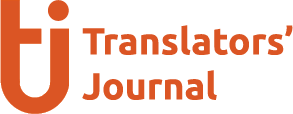
Knowing how much to charge is not a challenge only new translators face, seasoned freelancers struggle with pricing their translation services as well. If you set your prices too high, you are at risk of not getting many clients. If you set the price too low, you are at more risk of not getting valuable clients. If you don’t get it right you are always in the fear of missing out on the best clients.
How do you draw your best clients? It’s important that you should lay out a plan of how you confidently price your translation services that both drives more clients and revenue.
Pricing Models for Translation Services
There are some rare instances where translations are charged per page or per sentence. But, the following three models are the industry standard for most parts of the world:
1. Per word rate: This model charges a fixed rate per translated word. It multiplies the number of source words translated with the fixed rate. For both translators and clients, this is a straightforward and easy to calculate model. It is more common with agencies rather than direct clients. If you have a complex project requiring more research or creativity, it may not be the best model.
2. Per hour rate: Here you charge a fixed hourly rate for the time invested. Charging by hours is less usual. You will find less projects that fit this model. The per-hour rate model is typically used for complex projects or projects with uncertain scope. It can be beneficial for translators working on projects requiring a lot of research or editing.
3. A flat or per project rate: Here you charge a fixed fee for the entire project. Here the word counts of the source documents or the actual hours spent are not accounted for. Here you have a fixed deadline with a defined scope of work. With these projects accurate estimation is key. This model is appropriate for clients who are less familiar with translation workflows.
Factors to Consider Before Setting Translation Rates
Setting the right rates for your translation services is crucial to ensure you have a sustainable income. Consider these factors to determine how much you should charge for translation work:
1. Your Business Expenses & Earning Goal:
Know your numbers. What is your yearly earning goal? What are your business costs? Consider expenses for equipment, software, subscriptions, stationary, taxes, etc.
2. The Earning Potential & Job Prospect for Your Language Pairs:
Your language combination is a major determinant of how much you can charge for translation. Some language pairs are likely to offer higher prices than others. Also, some pairs will have more work than other pairs. It is your particular language combinations that you need to understand well. Try to find out if you can earn the type of money you want with this pair.
3. Your Value: Your education, specialization, and experience can contribute to your value as a translator. For example, with a legal or medical specialization you are likely to charge higher. Consider the factors that contribute to your value and build up your unique selling proposition on those factors.
How to Charge for Translation Services
Before I tell you how to charge for translation services, let me tell you how not to price your translation services.
Do not set your rates solely based on what other translators are charging. You should charge based on your unique selling factors outlined in the previous section. The pricing factors of a translator working in a different language pair than yours and living in another part of the world is not comparable to that of yours. Do not either charge lower or higher based on your comparisons with other translators.
You should set our rate based on your unique selling points. Here is a straightforward way how I do it.
Answer these four questions:
1. What is your yearly earning goal?
2. How many non-billable weeks would you have in a given year?
3. How many billable hours in your ideal week?
4. How many words can you translate in an hour?
By answering these four questions, with some simple calculations you can know exactly:
1. What should be your minimum hourly rate for translation
2. What should be your minimum per word rate for translation
Here you can find my google sheet template to calculate how much you should charge per hour or per word for translation. You will not need to give your email or name to download it, you can make a copy of the file and use it for free. Once you make a copy of the file, fill in your answers for the first four questions, and your rates will be calculated in column G.
Remember, by charging fair rates, you show professionalism and build trust with clients. This also helps you avoid undercutting fellow translators. Undercutting rates can devalue the work of translators and set a low standard for the industry. Also, deliver high-quality translations that meet or exceed client expectations. To do so, ensure your translations are accurate, consistent, and free of errors. Actively seek feedback from clients to improve your work and address any concerns.
Are You Looking for Jobs in the Language Industry?
If you are looking for in-house jobs, you should check out Weekly Job Window.
Every week, we handpick in-house jobs for translators, interpreters, linguists, writers, editors, and localization professionals so you can stay updated without searching hundreds of listings spread across the internet.
You can access the latest jobs of the current week here. Feel free to bookmark it as well.
To get the full list every week to your inbox, subscribe.



